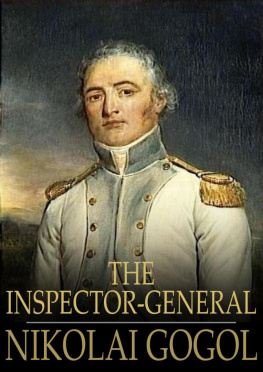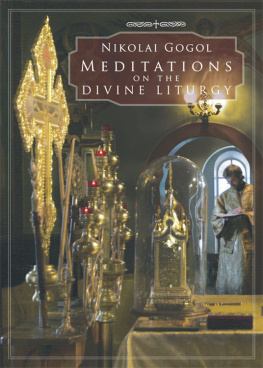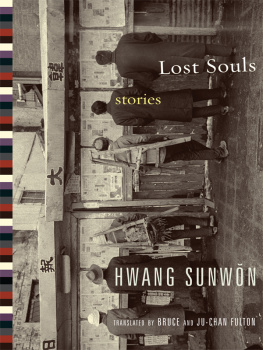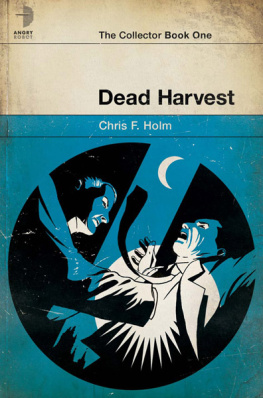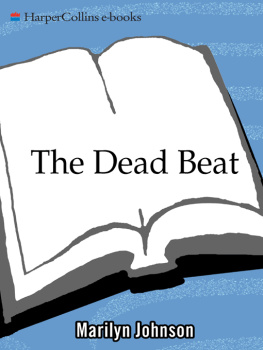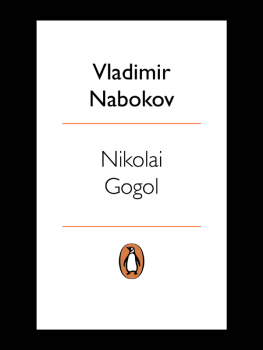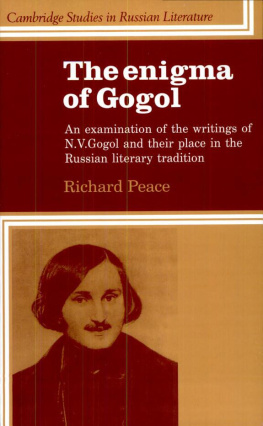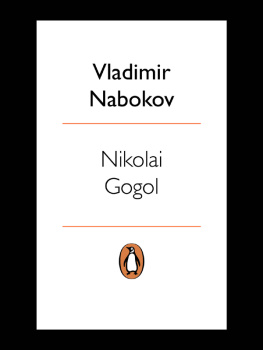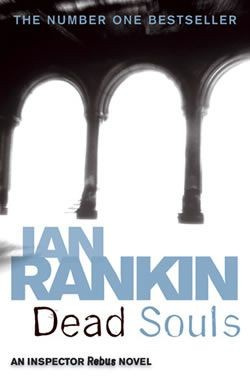Dead Souls
Dead Souls
Nikolai Gogol
Translated by Bernard Guilbert Guerney
Revised, edited, and with
an introduction by Susanne Fusso
Yale University Press
New Haven and London
Copyright 1996 by Yale University.
All rights reserved.
This book may not be reproduced, in whole or in part, including illustrations, in any form (beyond that copying permitted by Sections 107 and 108 of the U.S. Copyright Law and except by reviewers for the public press), without written permission from the publishers.
Designed by Sonia L. Scanlon.
Printed in the United States of America
by BookCrafters, Inc., Chelsea, Michigan.
Library of Congress
Cataloging-in-Publication Data
Gogol, Nikola Vasilevich, 1809-1852
[Mertvye dushi. English]
Dead souls / Nikolai Gogol; translated by
Bernard Guilbert Guerney ; revised, edited and
with an introduction by Susanne Fusso.
p. cm.
ISBN 0-300-06099-8 (alk. paper : c)
I. Guerney, Bernard Guilbert, 1894
II. Fusso, Susanne. III. Title.
PG3333.M4 1996b
891.733dc20 95-38157
CIP
A catalogue record for this book is available from
the British Library.
The paper in this book meets the guidelines for permanence and durability of the Committee on Production Guidelines for Book Longevity of the Council on Library Resources.
10 9 8 7 6 5 4
Contents
Acknowledgments
I would like to thank Gary Saul Morson and Jonathan Brent for their constant interest in and support for this project. Bernard Guilbert Guerney, Jr., kindly introduced me to Charlotte de Lissovoy, who generously shared with me her Pennsylvania State University masters thesis on the archives of Bernard Guilbert Guerney, Sr. This thesis is not just a catalogue of Guerneys papers but also a vivid portrait of the man himself; he emerges as a witty, opinionated, and sophisticated littrateur, as one might expect from his masterly translations. I have also received encouragement and assistance from Cynthia Erickson, Donald Fanger, Alexander Lehrman, Priscilla Meyer, Mary Lou Nelles, and Stanley Rabinowitz. Jane Hedges of Yale University Press expertly edited my editing. Wesleyan University provided generous assistance. Finally I would like to thank my husband, Howard Stern, for his patience and support.
Editorial Note
In revising Bernard Guilbert Guerneys translation of Dead Souls, I have relied on the following works:
Dal, Vladimir. Tolkovyi slovar zhivogo velikorusskogo iazyka. 4 vols. 4th ed. Edited by J. A. Baudouin de Courtenay. St. Petersburg: M. O. VoFf, 1904.
Gogol, N. V. Polnoe sobranie sochinenii. 14 vols. Moscow: Akademiia nauk SSSR, 1937-52.
Gogol, N. V. Sobranie sochinenii. 7 vols. Edited by S. I. Mashinskii and M. B. Khrapchenko. Moscow: Khudozhestvennaia literatura, 1978.
Kirsanova, R. M. Rozovaia ksandreika i dradedamovyi platok: Kostium veshch i obraz v russkoi literature XIX veka. Moscow: Kniga, 1989.
Molokhovets, Elena. Podarok molodym khoziaikam, Hi Sredstvo k umensheniiu raskhodov v domashnem khoziaistve. Reprint. Moscow: Priboi, 1992.
Nabokov, Vladimir. Nikolai Gogol. New York: New Directions, 1944.
Ozhegov, S. I. Slovar russkogo iazyka. 10th ed. Edited by N. Iu. Shve-dova. Moscow: Sovetskaia entsiklopediia, 1973.
I have used both Guerneys original 1942 translation and his revised fourth edition of 1948. All names have been brought into conformity with the Library of Congress system of transliteration; soft signs are used in bibliographic citations, but not in the text. To avoid confusion, the name Semen has been transliterated as Semion. Footnotes signed B.G.G. are Guerneys; all others are mine. Ellipses are Gogols unless they appear in brackets.
Introduction
In order to read Nikolai Gogols 1842 masterpiece, one must first get past the title page. From the very beginning, the title Dead Souls has been both a stumbling block and a touchstone: an enigma whose solution reveals more about the solver than about itself. There is of course a clear, seemingly mundane referent for the phrase dead souls: before 1861, Russia was a serf-owning society; these serfs were sometimes referred to as souls, especially when being counted for tax purposes. Serfs who died after one of the periodic censuses were, until the next census, still considered taxable property despite their nonexistence. The hero of Dead Souls, Pavel Ivanovich Chichikov, makes a series of visits to the landowners in an unnamed provincial town, offering to buy these dead souls at a cut-rate price, thus relieving their owners of a tax burden and obtaining for himself property that can later be mortgaged fraudulently.
The mundane explanation, however, has never exorcised the title Dead Souls of its disturbing, haunting mystery. One of the earliest readers of the novel, the chairman of the Moscow Censorship Committee, reacted violently to the mocking challenge of Gogols title, as Gogol himself recounted in a letter of January 1842:
As soon as the chairman heard the title Dead Souls, he began to shout in the voice of an ancient Roman: No, this I will never permit: the soul is immortal; there cannot be such a thing as a dead soul, the author is taking a stand against immortality!
When it was explained to him that the title referred not to the immortal soul but to the bureaucratically designated chattel, the censor was not mollified in the least; he expressed the view that the very mention of the word soul in this context would constitute a statement against the system of serfdom. The novel eventually appeared under the softened title The Adventures of Chichikov; or, Dead Souls. (Gogol got his revenge by designing a title page on which the unwanted phrase The Adventures of Chichikov appeared in tiny print.)
Gogol ridiculed the censors reaction to his title, but he must have secretly known that the censor had a point, not only about the title but also about the work that it so beautifully fits. In passages like the following, Gogol does seem to call into question the worth and even the existence of the human soul:
Sobakevich kept on listening ... and if but something, in the least resembling an expression, would appear on his face! It seemed as if there were no soul at all in his body, or, if it were there, it was not at all in the place it should be, but, as with Koshchei the Deathless in the fairy tale, somewhere beyond many hills and dales and sheathed in such a thick shell that everything which stirred at the bottom of his soul created absolutely no commotion on the surface, ()
Only [when he died] did they find out, with regret, that the Public Prosecutor had had a soul, although out of modesty he had never flaunted it. ()
On the mundane level, Chichikovs day-to-day activity, his obsessive bargaining for dead souls, is a constant reminder of the hideous moral ulcer that a society founded on slavery can never hide or heal.
Readers of Dead Souls in the decades following its appearance in 1842 tended to choose one of these two aspects of the work to focus on: its portrait of the human soul, especially in the context of Russian Orthodox theology, or its savagely satirical excoriation of the evils of nineteenth-century Russian society. Appropriately enough, the reading of Dead Souls as social commentary predominated in the years immediately following the novels publication. The most influential nineteenth-century reader of Gogol, the radical critic Vissarion Belinskii, saw Dead Souls as a work of unflinching realism and social criticism that mercilessly rips the coverings from reality. For these critics, Gogols examination of the underside of Russian lifewhat the narrator of


